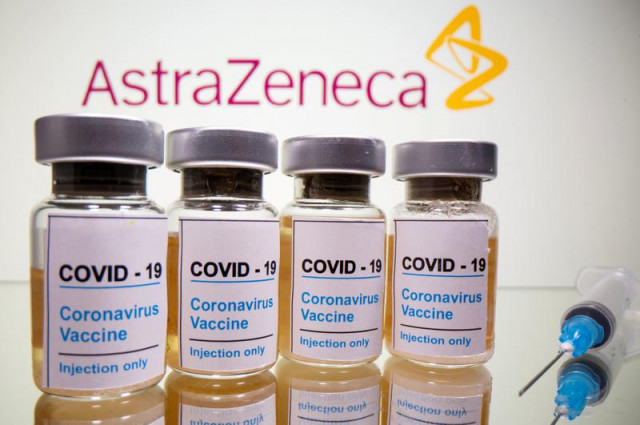EU locks horns with AstraZeneca on vaccine deliveries amid 'supply shock'
AstraZeneca told the EU on Friday it could not meet agreed supply targets up to the end of March

AstraZeneca is not doing enough to try to resolve a dispute over delayed Covid-19 vaccine deliveries to the European Union, the bloc’s top health official said on Monday, as news emerged the drugmaker is also facing supply problems elsewhere.
In a sign of the EU’s frustration - after Pfizer also announced a temporary slowdown in vaccine supplies earlier in January - EU health commissioner Stella Kyriakides proposed forcing drugmakers to register in advance their Covid-19 vaccine exports, so the bloc can keep track of what they are doing.
AstraZeneca, which developed its shot with Oxford University, told the EU on Friday it could not meet agreed supply targets up to the end of March.
An EU official involved in the talks told Reuters that meant a 60% cut to 31 million doses, a blow to the bloc which was already facing criticism for lagging the United States and Britain with its vaccination campaign.
After Friday’s unexpected announcement, the EU asked AstraZeneca to find flexible ways to deliver doses and urged it to disclose vaccine production and distribution data.
“The answers of the company have not been satisfactory so far,” Kyriakides said after a meeting with the company, adding a new meeting would be held later in the day.
Earlier on Monday, the head of the EU executive Ursula von der Leyen had a call with AstraZeneca’s chief Pascal Soriot to remind him of the firm’s commitments.
A spokesman for AstraZeneca said Soriot told von der Leyen the company was doing everything it could to bring its vaccine to millions of Europeans as soon as possible.
However, news also emerged on Monday that the company faces wider supply problems.
EU says AstraZeneca's explanation of decision to slow Covid-19 vaccine supplies inadequate: EU commissioner
Australia’s Health Minister Greg Hunt told reporters AstraZeneca had advised the country it had experienced “a significant supply shock”, which would cut supplies in March below what was agreed. He did not provide figures.
Thailand’s Health Minister Anutin Charnvirakul said AstraZeneca would be supplying 150,000 doses instead of the 200,000 planned, and far less than the 1 million shots the country had initially requested.
AstraZeneca declined to comment on global supply issues.
‘Flimsy justification’
Another EU official told Reuters AstraZeneca had received an upfront payment of 336 million euros ($409 million) when the EU sealed a deal with the company in August for at least 300 million doses and an option for another 100 million - the first signed by the bloc to secure Covid-19 shots.
That was after the United States in May secured 300 million doses for up to $1.2 billion, and Britain, also in May, secured 100 million doses for 84 million pounds ($115 million).
Under advance purchase deals sealed during the pandemic, the EU makes down-payments to companies to secure doses, with the money expected to be mostly used to expand production capacity.
“Initial volumes will be lower than originally anticipated due to reduced yields at a manufacturing site within our European supply chain,” AstraZeneca said on Friday.
The site is a viral vectors factory in Belgium run by the drugmaker’s partner Novasep.
Viral vectors are produced in genetically modified living cells that have to be nurtured in bioreactors. The complex procedure requires fine-tuning of various inputs and variables to arrive at consistently high yields.
“The flimsy justification that there are difficulties in the EU supply chain but not elsewhere does not hold water, as it is of course no problem to get the vaccine from the UK to the continent,” said EU lawmaker Peter Liese, who is from the same party as German Chancellor Angela Merkel.
EU contracts with vaccine makers are confidential, but an EU official involved in the talks did not rule out penalties for AstraZeneca, given the large revision to its commitments. However, the source did not elaborate on what could trigger the penalties. “We are not there yet,” the official added.
“AstraZeneca has been contractually obligated to produce since as early as October and they are apparently delivering to other parts of the world, including the UK without delay,” Liese said.
AstraZeneca’s vaccine is expected to be approved for use in the EU on Jan. 29, with first deliveries expected from February 15.



















COMMENTS
Comments are moderated and generally will be posted if they are on-topic and not abusive.
For more information, please see our Comments FAQ